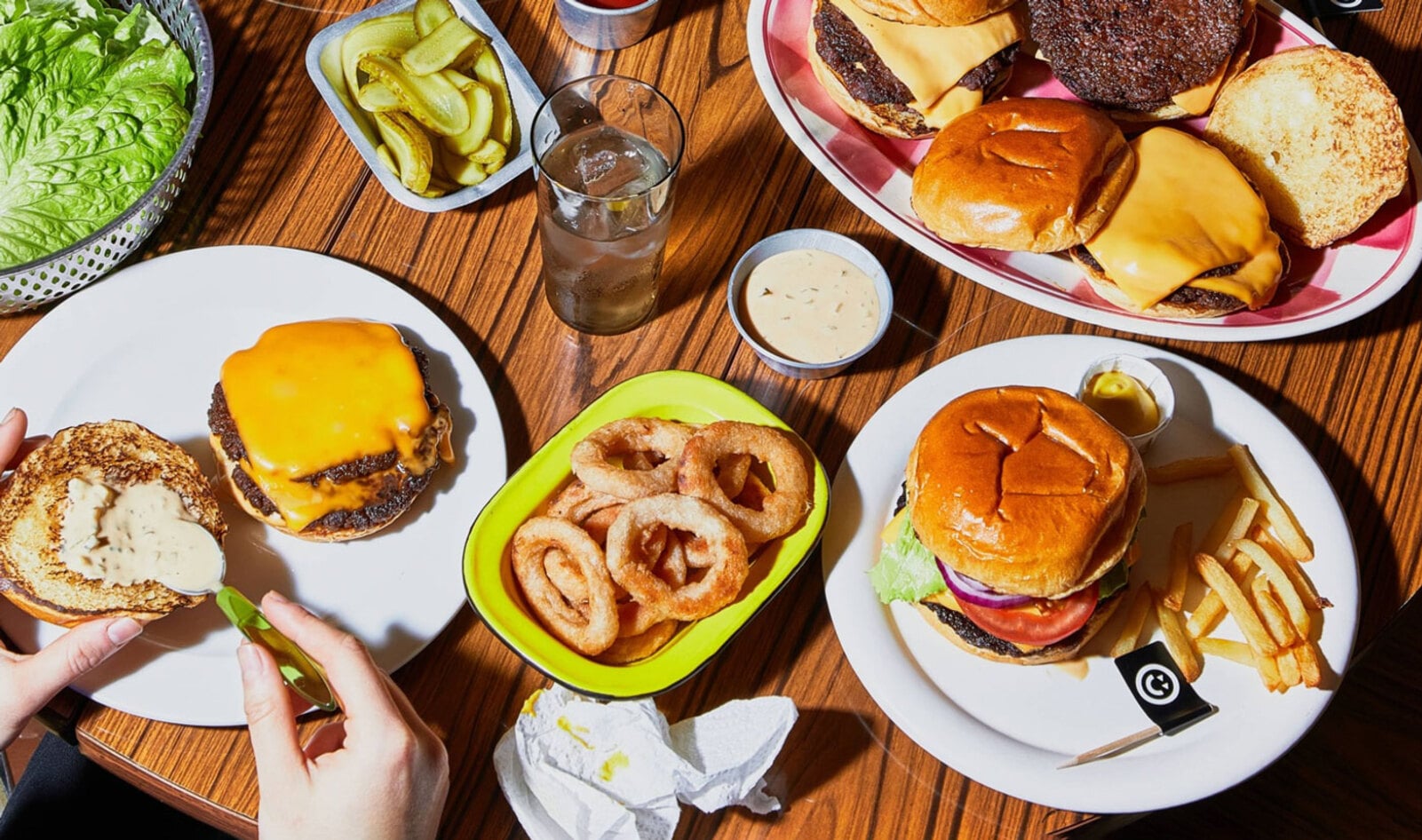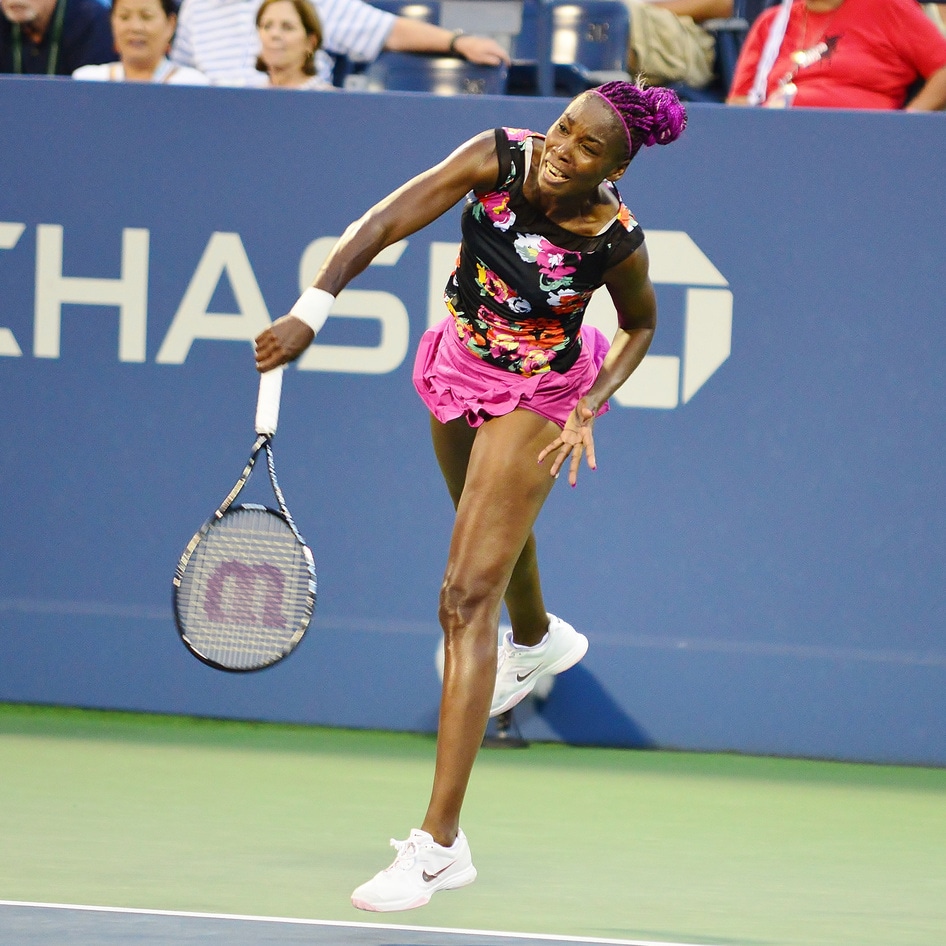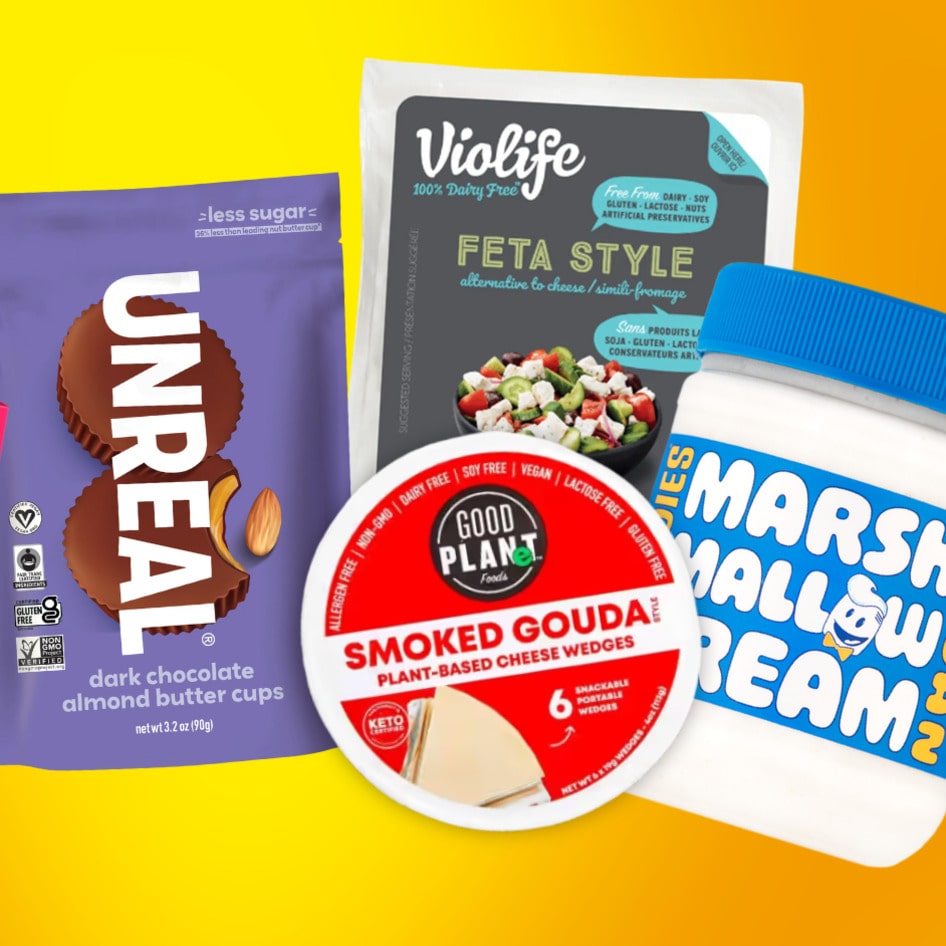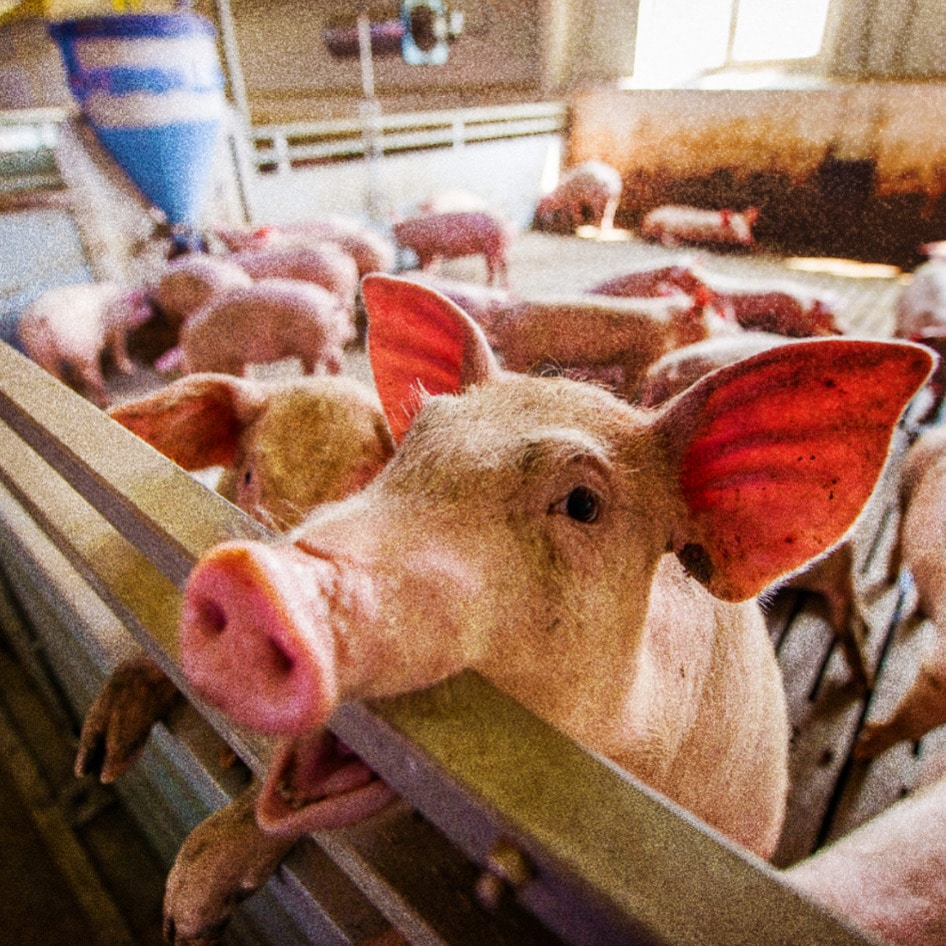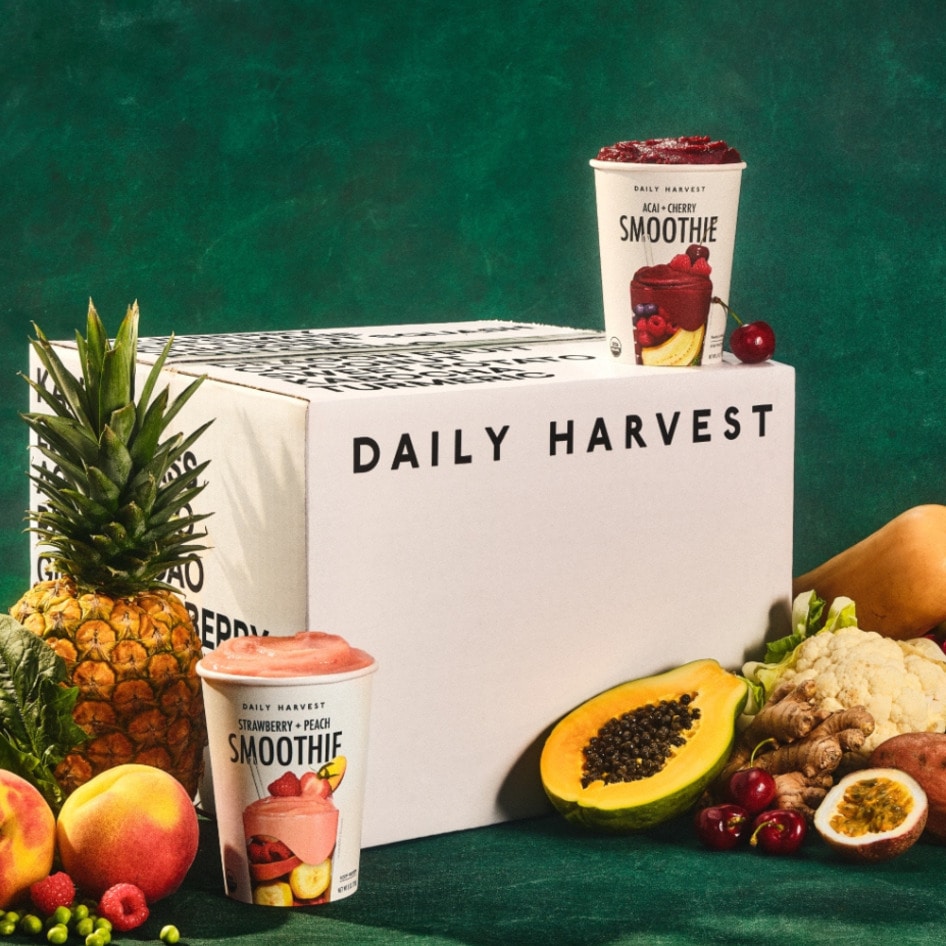Alexandre Ruberti, CEO of Brazilian plant-based protein company Future Farm, says the growth of the vegan meat market is a lot like that of electric cars. In other words, the plant-based industry will ebb and flow before becoming fully established.
“Like any new market, they often see rapid growth, a decline, and then stabilization,” Ruberti tells VegNews. “We’re still early on in this category and it’s going to have its natural ebbs and flows.”
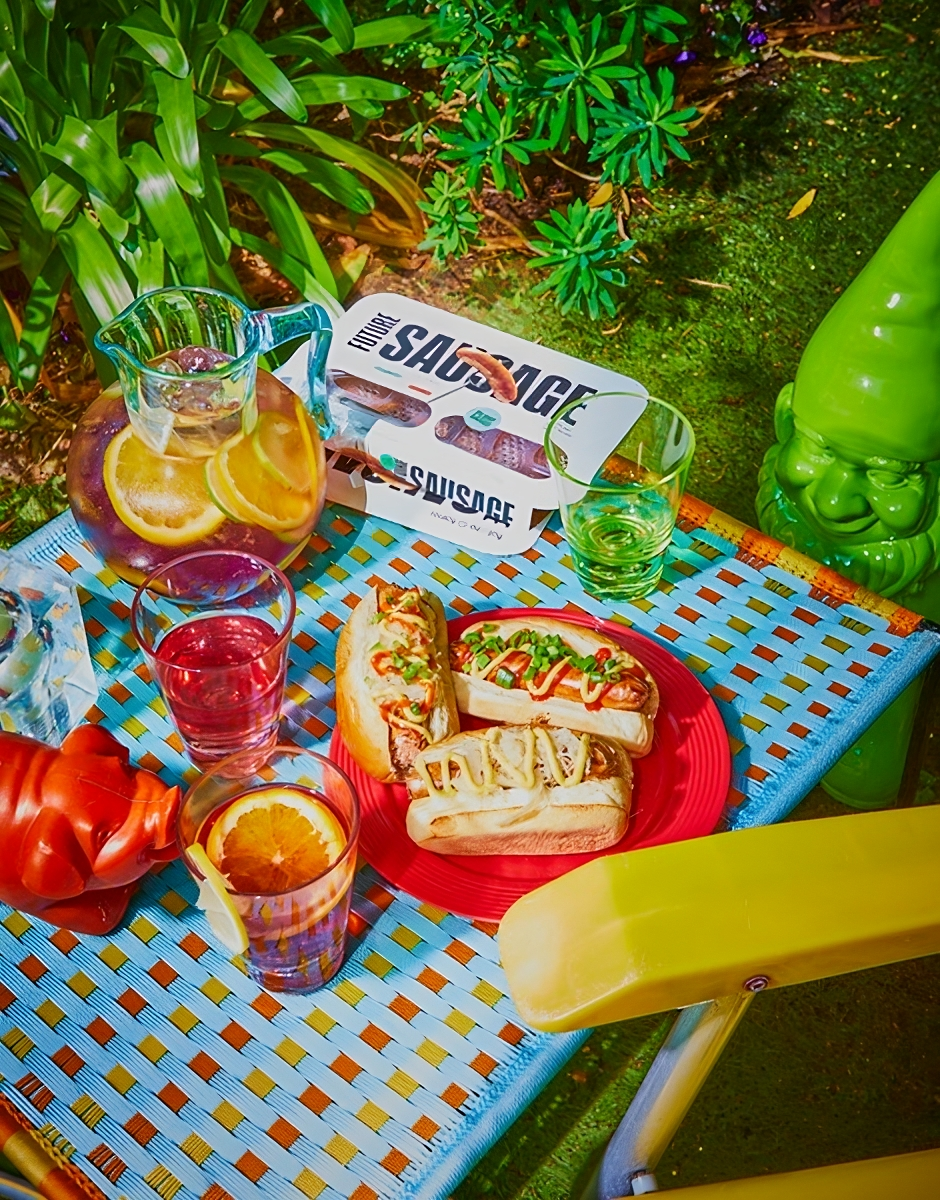 Future Farm
Future Farm
Prior to Future Farm, Ruberti worked at now-popular energy drink brand Red Bull for 16 years, serving in executive positions at Red Bull Distribution Company USA and Red Bull North America. He is credited with steering the business through incremental growth, and he now brings his wealth of experience to the plant-based industry.
As an expert in consumer packaged goods like Red Bull, Ruberti knows a thing or two about bringing innovative products to market. His comparison of the plant-based meat market to the electric vehicles and energy drinks categories highlights the similarities those industries saw.
“If you look at where EVs and energy drinks are now, you can’t drive down the street without seeing an electric car or go into practically any shop without seeing cases full of energy drinks,” Ruberti says.
“My point is that plant-based isn’t much different, we’re in it for the long run and will continue to innovate to meet consumer demand,” he says.
A future without animal meat
Founded in 2019 by Brazilian entrepreneur Marcos Leta and business partner Alfredo Strechinsky, Future Farm’s mission is encapsulated in its name: to create the farm of the future, where plant-based products replace the cruel and unsustainable animal-derived counterparts of the past.
 Future Farm
Future Farm
For his part, Ruberti joined the business because he knows humanity cannot keep consuming traditional animal protein at the rate we do today. And he’s onboard with Future Farm’s mission to change the way the world eats.
“At Future Farm, we envision a world where people choose to eat plants, not animals,” Ruberti says. “That means shifting from an animal-heavy diet to a plant-heavy diet.”
Yet he’s also conscious of the sacrifices consumers think they have to make when it comes to sustainable food. “Consumers should know we’re not asking them to ditch traditional protein 100 percent of the time,” Ruberti says. “We understand the process is not from one day to the next, but rather it’s the small choices over time in everyday meals that will leave a positive and lasting impact on the environment.”
In other words, small changes in one’s diet—choosing plant-based meat for a meal, for example—actually does make a difference. And educating consumers on this fact is key to adoption.
“I think the industry as a whole has to recognize that we’re also in the business of educating people—to show them that they have a choice in what they eat,” Ruberti says. “They can get delicious-tasting protein that doesn’t sacrifice the environment and sustainability.”
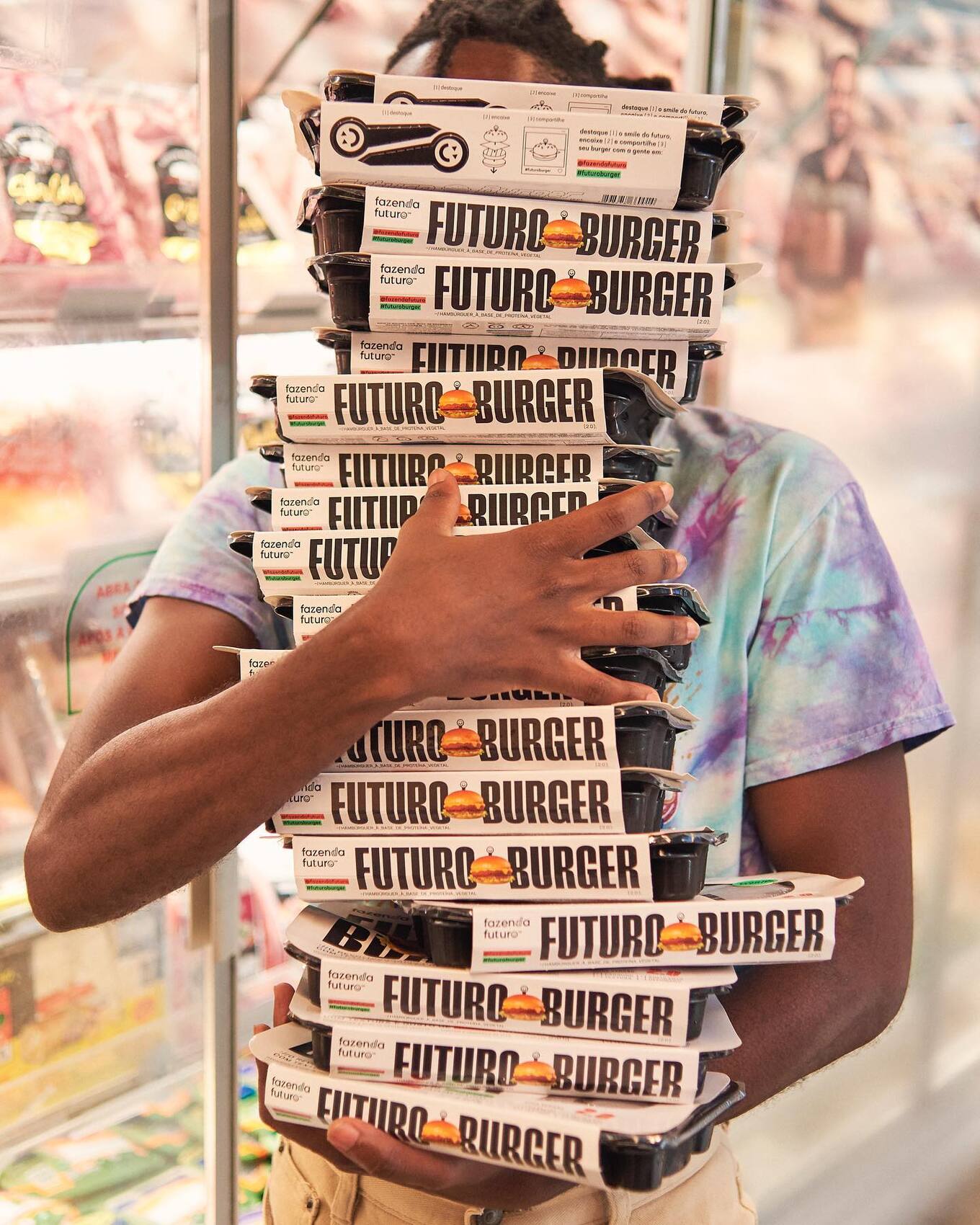 Future Farm
Future Farm
This also means educating them on the sustainability metrics of plant-based food products versus animal products. “Our Future Burger is 100-percent carbon neutral; we’ve partnered with ClimatePartner to track our carbon emissions and plant trees in our backyard, the Amazon Rainforest, to offset those emissions,” Ruberti points out.
What sets Future Farm apart
The growing plant-based protein industry constantly welcomes new players creating sustainable products. What sets Future Farm apart from these brands? “It’s really all in our name,” Ruberti says. “We’re creating the farm of the future, where consumers can get delicious food of the future, today.”
“We’re forward thinkers and conscious about the environment, so we’re creating products like Future Tuna that continue to push the boundaries and provide some of the highest quality and best-tasting plant-based products on the market,” he says.
The company first tackled beef with the launch of its hero product Future Burger, followed by its Future Meatball, Future Beef, and Future Sausage—all of which expanded to the United States in 2021.
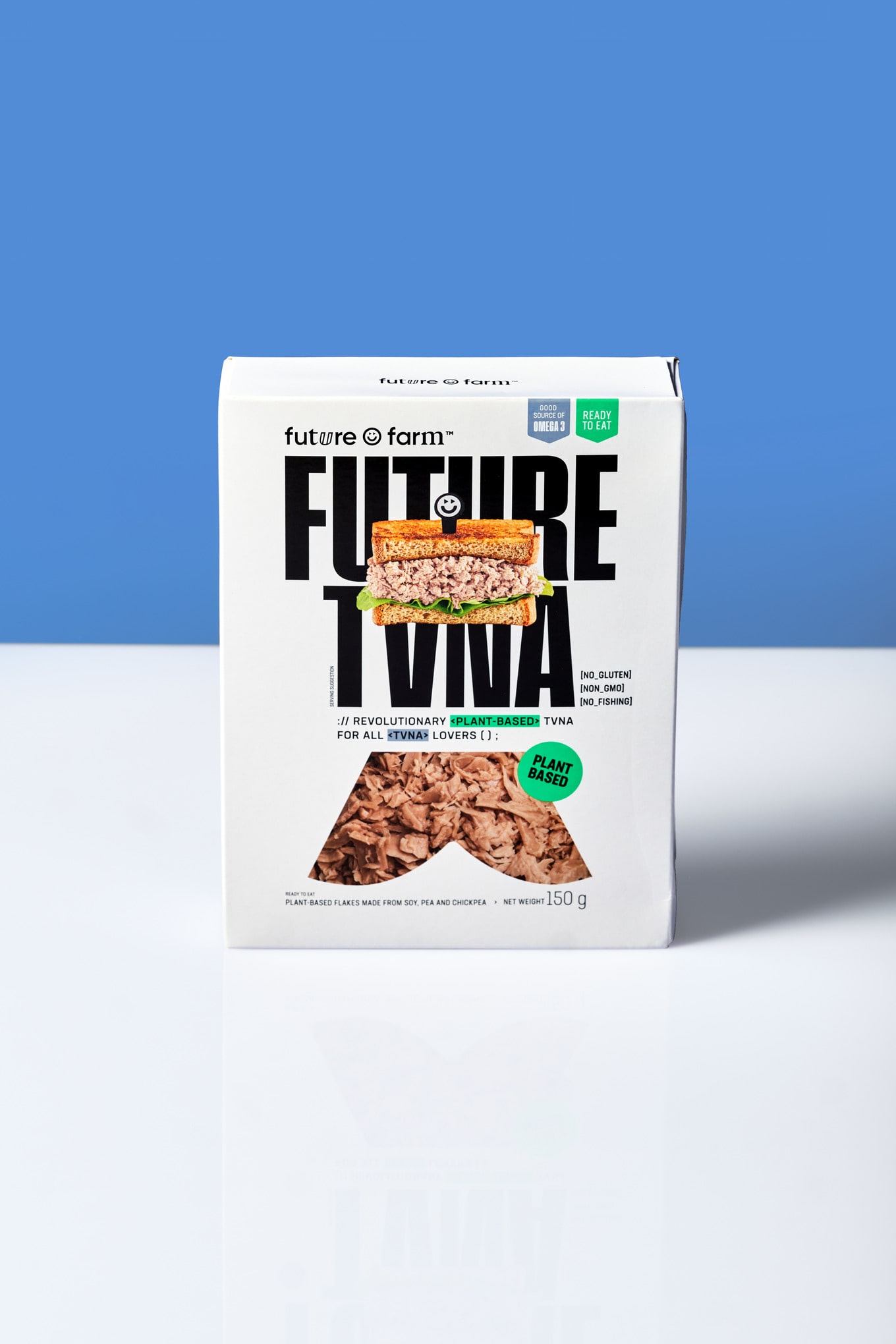 Future Farm
Future Farm
This year, Future Farm is tackling new categories with the launch of Future Chik’n and shelf-stable Future Tuna. Ultimately, it is working on 12 new vegan staples, including honey, milk, hot dogs, and more, to support a transition to a plant-based food system.
And because Future Farm products are made with natural ingredients, it allows the brand to create plant-based versions that are comparable in nutritional value to animal protein—but without the downsides.
“Future Farm products mimic the flavor, appearance, and juiciness of traditional protein, but all are non-GMO, gluten-free, 0 percent cholesterol, and most impressive, 0 percent trans fat,” Ruberti says.
“We’re sophisticating technology to the point where consumers don’t recognize what is animal protein and what is vegetable protein,” Ruberti says.
Ultimately, Ruberti says that in order to get to the point where plant-based meat is as accepted and established as electric cars and energy drinks, we need to shift the conversation to plant-based meat as a food solution to our environmental crisis.
“It’s a huge step forward in the right direction of making food that is sustainable,” Ruberti says. “Naturally, it takes time for consumers to adopt different diets and the industry will continue to grow.”
For the latest vegan news, read:
JUMP TO ... Latest News | Recipes | Guides | Health | Subscribe

